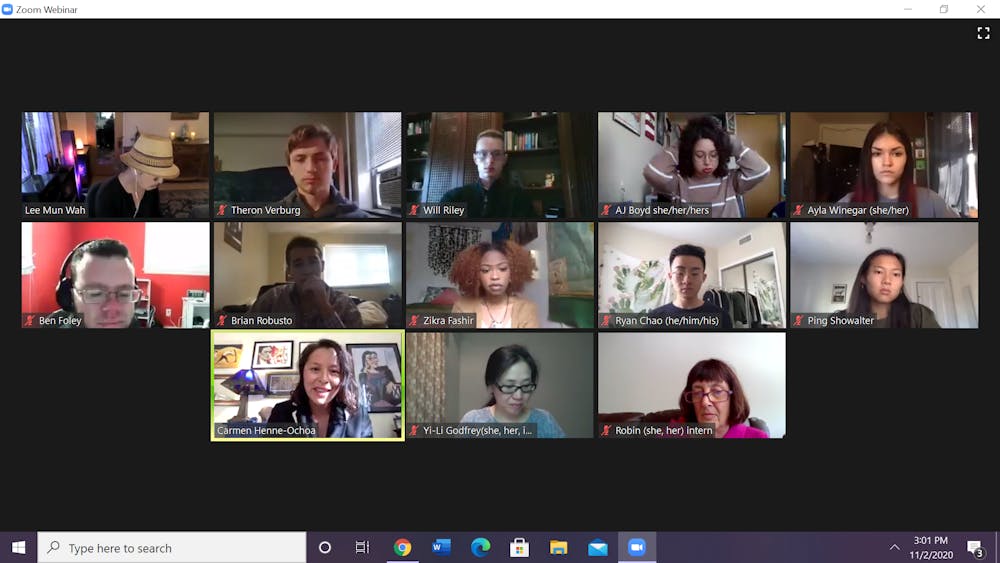The IU College Office of Diversity and Inclusion organized the “If Our Campus Halls Could Talk, What Would They Say?” virtual open dialogue Monday afternoon, giving nine students a platform to voice concerns about the upcoming presidential election and challenges, opportunities and openings they see going forward.
The dialogue was open to the entire IU community and facilitated by Lee Mun Wah, a Chinese American documentary filmmaker, author, educator, community therapist and experienced diversity facilitator and trainer for more than 33 years, according to the calendar event posting. Lee is also the executive director of StirFry Seminars and Consulting, a diversity training company that provides educational tools and workshops on cross-cultural communication and awareness, mindful facilitation and conflict mediation techniques.
Lee began the seminar by having each panelist introduce themselves and their cultural or ethnic backgrounds. Of the nine students, five identified as people of color or biracial.
“I’ve lived on this earth for almost 74 years, and I don’t think I’ve ever seen such polarizing times,” Lee said. “Someone once said to me ‘do you think that racism is more prevalent today?’ and what I said was 'no, I think it’s always been here. I think we’re just talking about it more, maybe because we have no choice now.'”
Lee posed four main questions to the panelists: what is easy or hard about the upcoming election as a person of their ethnicity, who do we elect to elicit change, how do we bring about real change and if the panelists felt they had a voice.
Panelist Zikra Fashir identifies as Sudani and Black American. She said the most frustrating part of the upcoming election is when people yell at her to vote for Joe Biden.
“I think it’s really really frustrating when people think the only thing that they can do when it comes to politics is all about just voting,” she said. “They don’t actually support anybody in the community, they don’t actually support anybody anywhere besides going to the polls once every four years. It’s just so ingenuine it feels like.”
Other panelists agreed not only that citizens need to do more than vote, but also politicians should be more in-tune with their constituents. Panelist Ryan Chao is Taiwanese American and said society must look externally and support politicians more aligned with the will of the people.
“You need to have an individual who is in touch with the community,” he said. “You can’t depend on the institutions that were literally designed to do what they’re currently doing to continue slapping bandages on this wound that’s just constantly opening. You have to look outside, you have to look to your communities and we have to support those communities. How can you say that you represent the people when you don’t even understand them?”
The panelists concluded everyone has a voice, it’s just dependent on how it’s used and who’s willing to listen to elicit change. They agreed silence is one of the largest tools of the oppressor, so those in a position of privilege should use their voice to raise awareness.
After his questions were answered, Lee spoke directly to the panel and Generation Z broadly.
“I’m 74 years old, and I’m proud of your generation,” he said. “I’m proud of each of you, and maybe the heroes you’re looking for are right in this room.”
The Office of the Vice Provost for Undergraduate Education, the Center for Innovative Teaching and Learning and the Division of Student Affairs co-sponsored this event.




